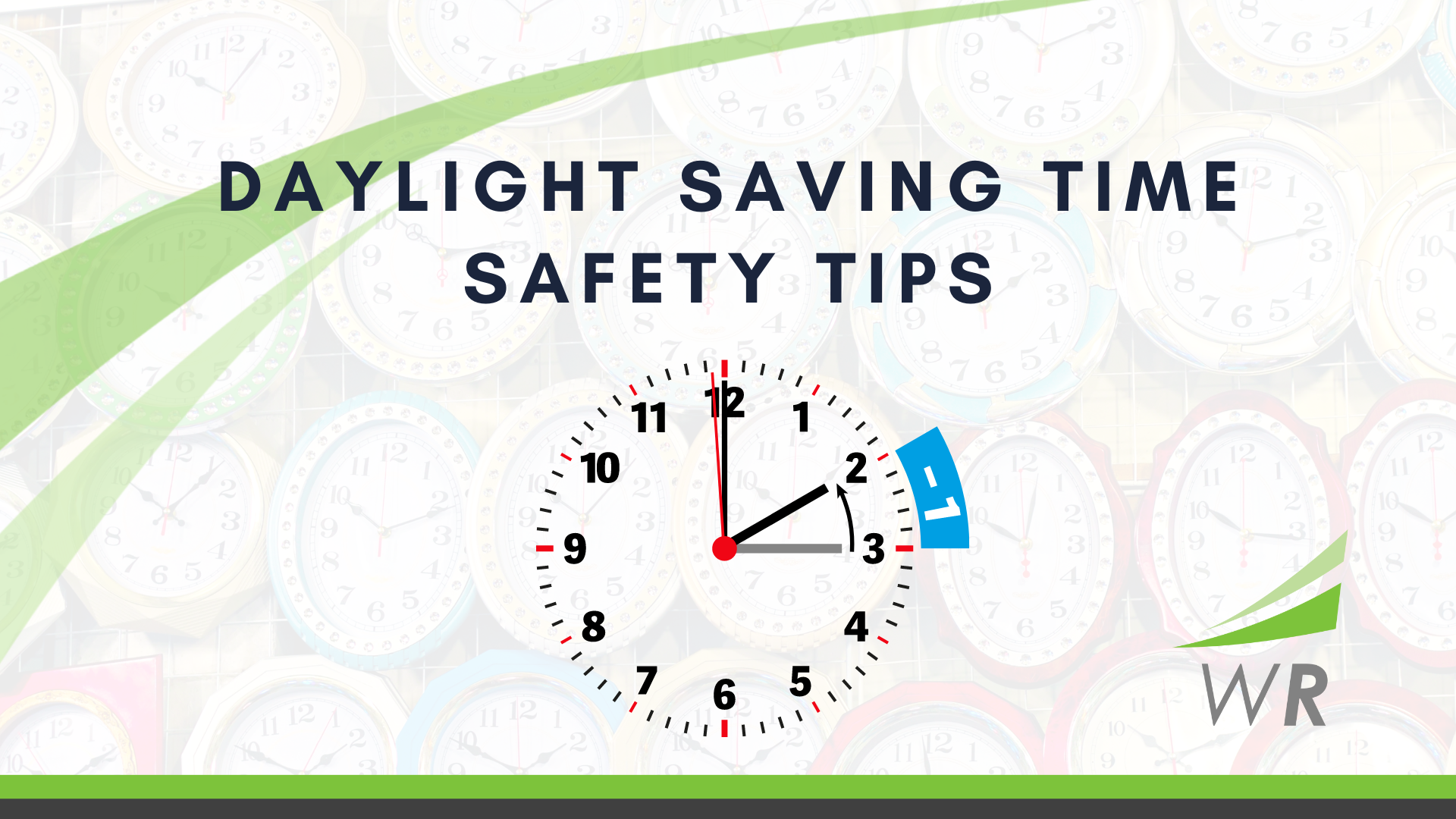Daylight Saving Time Safety Tips
Though only an hour difference, the change with daylight saving time often throws us off by more than we may expect. Accommodating to the change can take days or even weeks-for one lousy hour difference. Did you know that the abrupt change in our sleep/wake cycle as well as the sleep deprivation that may come with daylight saving time affects mood and alertness? Both of these are important to the industrial athlete, one being a safety risk (reduced alertness) and the other a negative effect on the workplace culture (changes to mood).
We can’t change whether daylight saving time happens or not, but we can change how we prepare for it and how we adapt to it. Try out these tips this week as you ease into the new time change. (Also, we dare you to not talk about how dark it is at 5pm for the next 3 months.)
Adapting to Daylight Saving Time Tips:
Limit caffeine and alcohol
This sounds like general advice on sleep habits, doesn’t it? Well, it IS. Maybe you find it’s too difficult to do on a regular basis, but just for the next week or so, make this a practice as you ease into the new time frame and adjust your sleep patterns.
Enhance Indoor Lighting
As it gets darker earlier in the afternoon, an increase in artificial light will suppress melotonin earlier in the day. Then an hour before bedtim, reduce the lighting so it doesn’t hinder your sleep. And while we are on the subject of lighting, reduce your screen time 1-2 hours before you sleep as well.
Stay Consistent With Sleep & Lifestyle
Stay consistent with the amount you sleep each night. Ideally you want to get ahead of this and adjust prior to daylight saving time. However, whether you are a planner or procrastinator, getting equal amounts of sleep (7-9 hours each night) will keep you from going into sleep debt. Likewise, stay consistent with your schedule, exercise earlier in the day and avoid late meals.
**Pro Tip**
The best advice we have is to prevent the abrupt change in the first place. Next daylight saving time, start time changes early. Start adjusting your bedtime a few days to a week before. In fall, move your bedtime back 15+ min each day. In spring, wake up 15+ min earlier than usual each day.
—
Be sure to check out our other blogs for further injury prevention education and tips from Work Right NW!

